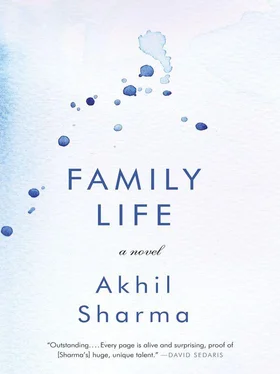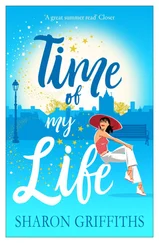I became sick with longing for women I barely knew. If a woman dressed well, I took this to signify that she could behave gracefully in every situation. I imagined not having much money and her still being kind.
Hema was a lawyer. I met her at a gathering of young Indian professionals. She was short and slightly stocky. She had wide hips, and she resembled one of those clay fertility goddesses one sees in museums. I had discovered that I liked what most women of my generation looked like, and whenever I saw her I became aroused.
I didn’t know Hema well, but I took her to a resort in Mexico. On our first afternoon there, she went to the pool while I napped in our room. I came down around evening and went looking for her. The pool was enormous and softly blue. There was a white beach in the distance, and a red seaplane bobbing on the water. The pool area was noisy. People were talking, music was playing, and tables scraped against the cement patio as workers set up for dinner. It was the end of a beautiful day, warm and breezy.
I saw Hema and, standing by the side of the pool, waved to her. I was wearing shorts and a linen shirt. She kicked her way to me. She was wearing a blue swimsuit. I reached down and pulled her out of the water. She had a strong, solid body.
She leaned against me. “I’m tipsy,” she slurred. Her pupils were dilated.
I walked her to a nearby table. She leaned heavily against me. “I got up too early this morning,” she said.
Hema sat down on a wicker chair. She stretched her legs out and tilted her head back. She stared up at the darkening sky, her eyes wide and white. She looked beautiful. I began to get happy. I had a strange sense of everything being in its place. I turned away.
The last children were climbing out of the pool. People were laughing. In the distance a man and his family were walking off the beach. Dragonflies hung in the breeze. I felt sad, happy, content. The sun was setting. The wind was picking up. The fronds of the palm trees shivered in delight. I could feel the weight of Hema’s body on the inside of my arm. I got happier and happier. In the distance was the beach and the breaking waves and the red seaplane bobbing in the water. The happiness was almost heavy.
That was when I knew I had a problem.
This book would not have been written without the help of numerous institutions and individuals.
The Mrs. Giles Whiting Foundation provided me with financial support when I was beginning to give up on the novel. The American Academy in Rome allowed me to stay in an apartment in their beautiful building when I was feeling especially wretched.
John Henderson, Ray Isle, and Nancy Packer read this manuscript numerous times. Bill Clegg was much more than an agent. Lorin Stein regularly suggested that I abandon this project and then, at the very end, helped drag the book over the finish line.
Most of all, I want to thank my editor Jill Bialosky and my publishing house W. W. Norton. When I handed it in, this book was nine years overdue. Each year, on the anniversary of the novel’s due date, Jill would email me and invite me to lunch. I felt so ashamed for not having handed in the book that I would take weeks replying. Her patience and the patience of Norton make me feel that for years I have been in the company of extraordinarily kind people.












